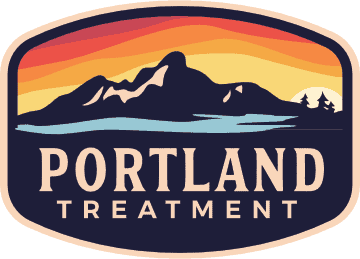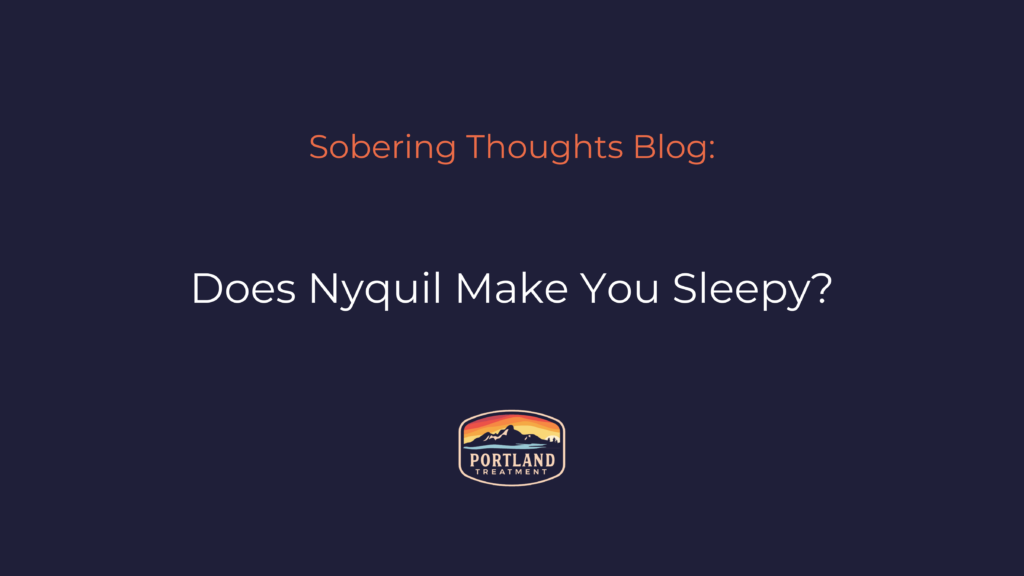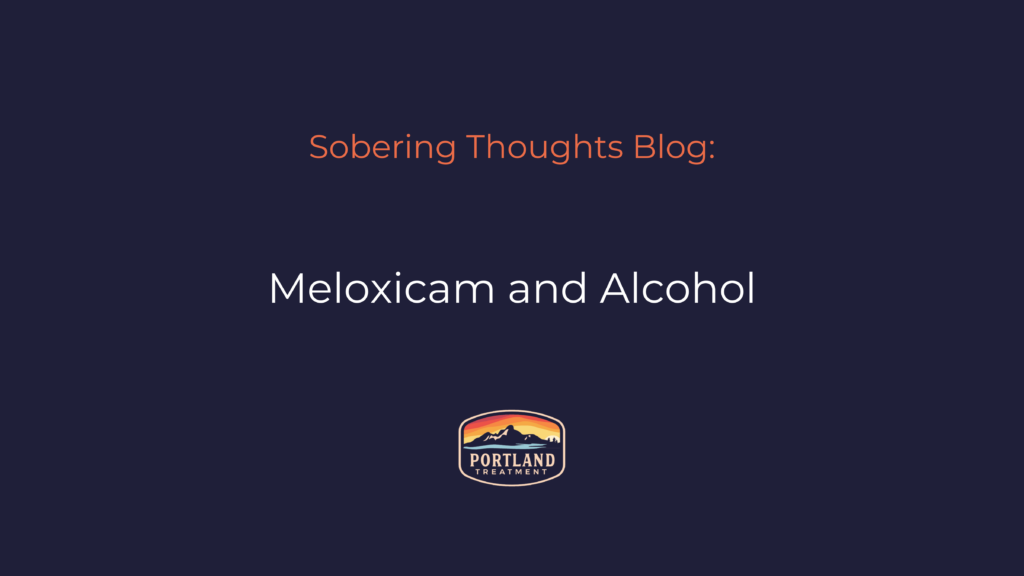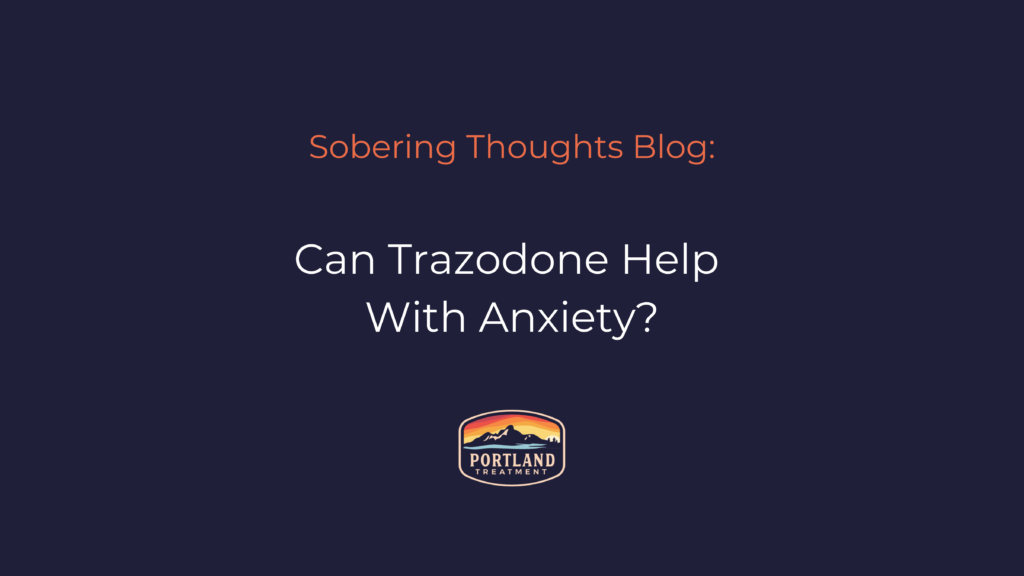Prescription painkiller addiction is a pressing issue that continues to impact communities around the country, including those in the Portland, Maine area. In this comprehensive article, we will delve into the background and impact of prescription painkiller addiction, specifically focusing on Portland, Maine. We will explore the available treatment options, support resources, and community programs …
Prescription painkiller addiction is a pressing issue that continues to impact communities around the country, including those in the Portland, Maine area. In this comprehensive article, we will delve into the background and impact of prescription painkiller addiction, specifically focusing on Portland, Maine. We will explore the available treatment options, support resources, and community programs aimed at combating this addiction. We will examine the unique challenges faced by rural areas in addressing prescription painkiller addiction and highlight successful approaches in these regions. We will discuss the collaborative efforts and partnerships involving healthcare providers, government and non-governmental organizations, as well as community stakeholders in addressing this issue. We will explore the future directions and innovations in prescription painkiller addiction management, including ongoing research, development, and innovative approaches. This article aims to provide a comprehensive understanding of prescription painkiller addiction and the effective strategies being implemented in and around Portland, Maine to address this critical issue.
Understanding Prescription Painkiller Addiction
Understanding Prescription Painkiller Addiction is crucial in addressing the opioid crisis and implementing effective prevention programs to combat opioid misuse. The impact of opioid misuse and addiction on individuals and communities cannot be understated, making it imperative to understand the underlying causes and contributing factors.
Prescription painkiller addiction has become alarmingly prevalent, with millions of individuals affected by the devastating consequences of substance use. The opioid crisis has resulted in widespread suffering, not only for those directly struggling with addiction but also for their families, friends, and communities. According to the CDC Clinical Practice Guideline, opioid misuse has led to a staggering increase in overdose deaths, placing a heavy burden on healthcare systems and social services.
Background of Prescription Painkiller Addiction
The background of Prescription Painkiller Addiction encompasses a comprehensive understanding of the factors contributing to opioid misuse and addiction, as revealed in research and data from organizations such as SAMHSA and the National Survey on Drug Use and Health.
Prescription painkiller addiction has been a growing concern, with a notable increase in opioid prescription rates and subsequent misuse over the past few decades. Research findings from SAMHSA indicate that the widespread availability and overprescription of opioids have significantly contributed to the rise in addiction cases. Data from the National Survey on Drug Use and Health highlights the demographic patterns and regional variances in prescription painkiller addiction, shedding light on the complexities of this public health issue.
Impact of Prescription Painkiller Addiction on Portland, Maine
The impact of Prescription Painkiller Addiction on Portland, Maine, extends to its rural communities and individuals struggling with back pain, chronic pain, and the challenges of effective pain management, as highlighted by experts such as Deborah Dowell.
Prescription painkiller addiction poses a unique set of challenges for rural communities in Portland, Maine. With limited access to healthcare facilities and specialized pain management resources, individuals grappling with back pain and chronic pain may be at a significant disadvantage. The prevalence of opioid prescriptions for pain management may lead to higher rates of addiction in these communities, exacerbating an already complex issue.
The stigma associated with seeking treatment for addiction in rural areas can hinder individuals from accessing the necessary support and care. This can perpetuate a cycle of dependence on prescription painkillers, impacting the overall well-being of the community.
Effective Strategies for Addressing Prescription Painkiller Addiction
Effective strategies for addressing prescription painkiller addiction involve targeted interventions related to opioid prescribing, comprehensive pain management, and adherence to clinical practice guidelines, as recommended by leading organizations like AHRQ.
Targeted interventions related to opioid prescribing often include the implementation of prescription drug monitoring programs to track and manage opioid prescriptions, as well as the utilization of evidence-based prescribing practices to minimize the risk of addiction and diversion.
Comprehensive pain management approaches encompass a multi-disciplinary approach, incorporating non-opioid therapies, physical therapy, and behavioral health interventions to address the underlying causes of pain and reduce reliance on prescription painkillers.
Adherence to clinical practice guidelines, such as those developed by AHRQ, emphasizes the integration of patient-centered care, shared decision-making, and the implementation of risk assessment tools to tailor treatment plans for individuals struggling with prescription painkiller addiction.
Available Treatment Options in Portland, Maine
In Portland, Maine, various treatment options for addressing Prescription Painkiller Addiction are available, including evidence-based interventions recommended by the Substance Abuse and Mental Health Services Administration (SAMHSA) for managing opioid use disorder.
These treatment options encompass a spectrum of evidence-based and comprehensive interventions geared towards individuals grappling with opioid use disorder. One widely employed approach involves medication-assisted treatment (MAT), where pharmacotherapy is combined with counseling and behavioral therapies to support recovery. MAT has shown promising outcomes in reducing illicit opioid use, decreasing criminal activity, and improving overall survival rates.
Psychotherapeutic modalities such as cognitive-behavioral therapy (CBT) and contingency management (CM) offer effective strategies to address the complex interplay of psychological and behavioral factors contributing to opioid dependence. These therapies focus on reshaping thought patterns, enhancing coping mechanisms, and providing positive reinforcement for sobriety.
For individuals seeking alternative non-pharmacological treatments, Portland, Maine offers access to peer support groups, residential rehabilitation programs, and outpatient counseling services. These holistic approaches provide a supportive environment, interpersonal connections, and coping skills to navigate the challenges of recovery from opioid use disorder.
Support and Resources for Individuals Battling Prescription Painkiller Addiction
Individuals battling Prescription Painkiller Addiction can access a range of support services and recovery programs, including peer support initiatives, as advocated by experts such as Kathleen R. Ragan.
These resources are designed to provide comprehensive support and guidance for those struggling with addiction. Recovery programs offer structured treatment plans that include medical supervision, counseling, and therapy to address the physical and psychological aspects of addiction.
Peer support initiatives, such as group therapy sessions and community-based programs, provide individuals with the opportunity to connect with others who have faced similar challenges, fostering a sense of belonging and understanding.
Professional services, including addiction counselors, psychologists, and psychiatrists, can offer personalized treatment plans and support to address the unique needs of each individual. By accessing these diverse support mechanisms, individuals can find hope and gain power in their journey towards recovery.
Community Programs and Initiatives for Combating Prescription Painkiller Addiction
Community programs and initiatives play a vital role in combating Prescription Painkiller Addiction, focusing on substance abuse prevention and opioid education, as advocated by organizations such as the National Center for Injury Prevention and Control.
These community-based efforts are crucial in addressing the pervasive issue of prescription painkiller addiction. They provide individuals with the necessary resources and support to overcome addiction and prevent the misuse of opioids.
These programs not only offer education and awareness but also promote a sense of community and belonging, providing a supportive environment for those struggling with addiction. Integrating National Center for Injury Prevention and Control initiatives into these programs enhances the effectiveness and comprehensiveness of community interventions, ensuring a more holistic approach to combatting prescription painkiller addiction.
Preventive Measures and Education on Prescription Painkiller Addiction
Preventive measures and education are essential components in the fight against Prescription Painkiller Addiction, underpinned by evidence-based programs and insights from research studies, including those acknowledged by the FDA and the findings of relevant UK studies.
Preventive measures play a crucial role in mitigating the risks of addiction to prescription painkillers. Educational initiatives raise awareness about the potential hazards of opioid misuse and foster knowledge-based decision-making among patients and healthcare professionals. Evidence-based programs offer effective strategies to address prescription painkiller addiction, drawing on validated research findings and recommendations. According to the FDA, education, and prevention are integral to reducing opioid misuse and its adverse consequences. Similarly, UK studies have highlighted the significance of proactive measures in curbing the prevalence of prescription painkiller addiction.
Challenges and Solutions in Dealing with Prescription Painkiller Addiction in Rural Areas
Dealing with Prescription Painkiller Addiction in rural areas presents unique challenges and complexities, requiring targeted solutions and interventions to address the impact of the opioid crisis, substance use prevention, and the management of back pain within rural communities.
Rural areas often face limited access to healthcare facilities and specialized treatment centers, resulting in significant barriers for individuals struggling with prescription painkiller addiction. The stigma surrounding substance abuse in these communities can contribute to underreporting and a lack of available support services.
Healthcare providers in rural settings may have limited training and resources to effectively manage chronic pain and implement alternative therapies for individuals with back pain, leading to a heavy reliance on prescription painkillers.
Addressing these challenges necessitates a multifaceted approach, including initiatives to improve access to addiction treatment, enhance education and awareness about substance use disorders, and promote the adoption of evidence-based practices for managing chronic pain in rural populations.
Unique Challenges Faced by Rural Communities in Addressing Prescription Painkiller Addiction
Rural communities encounter unique challenges in addressing Prescription Painkiller Addiction, including limited access to treatment and healthcare resources, as elucidated by experts such as Grant T. Baldwin.
These communities often grapple with geographical barriers, a lack of specialized healthcare professionals, and insufficient funding for addiction treatment programs. The stigma associated with seeking help for substance abuse in close-knit rural settings can hinder individuals from accessing necessary care.
Grant T. Baldwin’s research highlights the significant disparities in opioid prescription rates between rural and urban areas, shedding light on the specific vulnerabilities experienced by rural populations.
Successful Approaches in Rural Areas to Combat Prescription Painkiller Addiction
Successful approaches in rural areas to combat Prescription Painkiller Addiction focus on the implementation of tailored programs for substance use disorder treatment and community engagement, as recommended by experts such as Roger Chou.
Integrated strategies in rural regions often revolve around establishing specialized treatment centers that cater to the unique needs of the local population. These programs encompass a variety of approaches, including counseling, medication-assisted treatment, and holistic therapies to address the multifaceted nature of substance use disorder.
Community engagement initiatives play a pivotal role in raising awareness, reducing stigma, and promoting access to resources for individuals struggling with addiction. Roger Chou, along with other healthcare professionals, highlights the significance of personalized interventions that resonate with the rural community’s values and lifestyle.
Access to Treatment and Support Services for Prescription Painkiller Addiction in Rural Areas
Access to treatment and support services for Prescription Painkiller Addiction in rural areas remains a critical concern, with limitations in treatment accessibility and peer support resources, as evident from data and research by the National Survey on Drug Use and Health.
Despite efforts to address opioid addiction, rural areas face significant challenges in providing adequate resources for those struggling with Prescription Painkiller Addiction. The geographical isolation, limited healthcare infrastructure, and shortage of addiction specialists contribute to the difficulties faced by rural communities.
The shortage of treatment facilities and long distances to access support services create barriers for individuals seeking help. This lack of accessibility not only impacts individuals with addiction but also strains the resources of local health systems.
Recognizing these challenges, establishing peer support networks has emerged as a vital resource in rural areas. Peers who have experienced addiction and recovery firsthand provide invaluable empathy, understanding, and guidance to those in need, filling the gaps left by formal treatment services.
Collaborative Efforts and Partnerships in Addressing Prescription Painkiller Addiction
Collaborative efforts and partnerships are essential in addressing Prescription Painkiller Addiction, involving the active engagement of healthcare providers, adherence to best practices in opioid prescribing, and the implementation of comprehensive pain management strategies, supported by organizations like AHRQ.
Healthcare providers play a crucial role in the prevention and treatment of prescription painkiller addiction. By staying informed about the latest guidelines from AHRQ and other reputable sources, they can ensure that opioid prescribing aligns with best practices and prioritizes patient safety.
Comprehensive pain management strategies encompass a holistic approach, incorporating non-pharmacologic interventions, mental health support, and effective communication between healthcare professionals and patients.
Role of Healthcare Providers in Managing Prescription Painkiller Addiction
The role of healthcare providers in managing Prescription Painkiller Addiction involves the implementation of evidence-based interventions, adherence to clinical practice guidelines, responsible opioid prescribing, and patient education, as advocated by experts such as Christopher M. Jones.
Healthcare providers play a crucial role in addressing the complex challenges associated with prescription painkiller addiction. By relying on evidence-based interventions and clinical practice guidelines, providers can effectively support patients in their journey to recovery. In addition, responsible opioid prescribing practices are essential to mitigate the risk of abuse and dependence.
Integral to this process is patient education, where healthcare professionals give the power to individuals with knowledge about the potential risks of painkiller addiction and the available treatment and support options. Christopher M. Jones, a renowned authority in this domain, emphasizes the importance of equipping patients with comprehensive information to make informed decisions about their health.
Government and Non-Governmental Organizations’ Involvement in Tackling Prescription Painkiller Addiction
Government and non-governmental organizations play a crucial role in tackling Prescription Painkiller Addiction, leveraging resources and policy initiatives to address the impact of the opioid crisis and provide community support, as demonstrated by the efforts of organizations such as SAMHSA and AHRQ.
The involvement of these organizations is evident in the allocation of financial resources towards addiction treatment programs, research, and community outreach efforts. Government entities like SAMHSA have implemented comprehensive initiatives aimed at reducing opioid misuse and promoting evidence-based treatment approaches. Non-governmental organizations have contributed to raising awareness and providing support services for individuals struggling with painkiller addiction. Collaborative efforts between these organizations are vital in creating effective solutions to combat the opioid crisis and mitigate its widespread impact on communities.
Engagement of Communities and Stakeholders in the Fight Against Prescription Painkiller Addiction
The engagement of communities and stakeholders is pivotal in the fight against Prescription Painkiller Addiction, involving collaborative efforts, advocacy, and the involvement of organizations such as the American Chronic Pain Association and the American Pain Society.
Community engagement plays a crucial role in addressing the multifaceted challenges posed by prescription painkiller addiction. Through proactive collaboration, stakeholders can create a supportive network that fosters education, awareness, and access to resources.
The American Chronic Pain Association and the American Pain Society have been instrumental in orchestrating initiatives that bridge the gap between communities and healthcare providers, facilitating constructive dialogue and effective strategies to mitigate the impact of opioid misuse. By fostering a sense of shared responsibility and giving the power to them, these organizations cultivate an environment where individuals affected by painkiller addiction feel supported and understood.
Future Directions and Innovations in Prescription Painkiller Addiction Management
The future directions and innovations in Prescription Painkiller Addiction Management hinge on ongoing research, the understanding of opioid misuse, the application of evidence-based approaches, and the exploration of innovative strategies and technologies, including those recognized by the FDA.
Researchers are diving into the complex interplay of genetic, environmental, and psychological factors contributing to addiction, paving the way for personalized treatment regimens. The dynamics of opioid misuse are being scrutinized, propelling the development of interventions that address both the physical and psychological aspects of dependence.
Evidence-based approaches, bolstered by comprehensive clinical trials, are shaping more targeted and effective treatments for painkiller addiction. The incorporation of innovative technologies, such as digital therapeutics and telemedicine, promises to expand access to care and enable proactive monitoring of patient’s progress, aligning with the FDA’s emphasis on advancing patient-centric solutions.
Ongoing Research and Development for Improved Treatment and Prevention of Prescription Painkiller Addiction
Ongoing research and development initiatives are focused on enhancing the treatment and prevention of Prescription Painkiller Addiction, driven by experts like Roger Chou and supported by organizations such as AHRQ, to explore innovative treatments for substance use disorder.
These encompass a wide range of approaches, from pharmacological interventions to behavioral therapies, aimed at addressing the complex nature of addiction. The efforts also delve into the integration of telemedicine and digital health platforms to provide accessible and personalized care for individuals struggling with addiction.
Researchers are exploring the potential of neurostimulation and neuromodulation techniques as alternative methods for managing chronic pain without the risk of addiction. There is a growing focus on leveraging data analytics and predictive modeling to identify individuals at high risk of developing addiction and tailoring interventions to suit their needs. The dedication to continually seeking advancements in addiction management lays the foundation for comprehensive and effective treatment options, offering hope for those affected by this pervasive health challenge.
Innovative Approaches and Technologies for Addressing Prescription Painkiller Addiction Challenges
Innovative approaches and technologies offer promising solutions to address the challenges of Prescription Painkiller Addiction, leveraging digital interventions, technology solutions, and telehealth initiatives supported by organizations such as AHRQ, to combat the impact of the opioid crisis.
One of the key technological advancements in addiction management is the use of digital interventions. These include smartphone apps, online support groups, and virtual counseling sessions, providing accessible and convenient avenues for individuals struggling with prescription painkiller addiction to seek help and support. Additionally, technology solutions such as prescription drug monitoring programs and electronic health records integration play a crucial role in enhancing care coordination and identifying potential instances of over-prescription or misuse.
The integration of telehealth initiatives has revolutionized the delivery of addiction treatment and support services. Through telemedicine platforms, individuals can access evidence-based interventions, counseling, and medication-assisted treatment remotely, overcoming barriers related to geographic location, transportation, and stigma.
Why Portland Treatment is an Excellent Choice for Addiction Treatment in Maine
At Portland Treatment, we understand the complexity of battling addiction and the importance of finding the right treatment. Our approach to addiction treatment is holistic, focusing not only on the physical aspects but also on the emotional and psychological well-being of our clients.
Our Programs and Services
Our treatment programs are comprehensive and personalized. We offer a range of services tailored to meet the unique needs of each individual. This includes:
- Partial Hospitalization Program (PHP): Ideal for those seeking intensive therapy while residing at home or in a sober living environment.
- Intensive Outpatient Program (IOP): A flexible option that allows clients to balance therapy with their daily responsibilities.
- Outpatient Treatment: A supportive bridge between intensive care and long-term recovery, offering customized support for sustainable sobriety.
Treating a Range of Conditions
We specialize in treating various substance addictions, including Adderall, Alcohol, Ativan, and others. Additionally, our expertise extends to addressing mental health issues such as anxiety disorders, depression, and PTSD, which often co-occur with substance abuse.
Commitment to Safe and Ethical Treatment
Our commitment to providing safe, ethical, and effective treatment is unwavering. At Portland Treatment, we believe in empowering our clients with the tools and support necessary for a successful recovery journey.
Contact Us
If you or a loved one is struggling with addiction, contact us today to learn more about our programs and how we can help you on the path to recovery. Portland Treatment is your partner in overcoming addiction and achieving lasting wellness.






